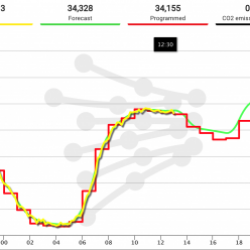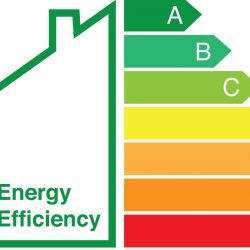Using sound theoretical, empirical, and simulation tools, researchers at EnergyEcoLab explore various issues with a common thread:
How to achieve a least cost energy transition.
Demand Flexibility
Assessing the efficiency and distributional consequences of dynamic electricity pricing.
Real-time electricity pricing (RTP) has been introduced as the default option for all households in Spain. This means that, instead of paying a traditionally flat retail price, residential consumers now face a retail tariff that varies hourly, according to changes in wholesale electricity prices. No other country has ever implemented RTP as broadly.
Access to a large dataset containing hourly consumption patterns of over 4 Million households allows us to test the effects of RTP. In particular, we explore whether household demand is elastic to hourly price changes, whether RTP has distributional effects across different types of households, and whether consumers are likely to abandon RTP in the search for less volatile albeit more expensive tariffs.
Completed and ongoing work in this area includes:
- “Variable Pricing and the Cost of Renewable Energy” Imelda, M. Roberts, and M. Fripp
- “Estimating the Elasticity to Real Time Pricing: Evidence from the Spanish Electricity Market” Fabra, N., D. Rapson , M. Reguant, and J. Wang.
- “The Distributional Impacts of Real-Time Pricing” Cahana, M., N. Fabra, M. Reguant, and J. Wang.
- “Storing Power: Market Structure Matters” D. Andrés-Cerezo and N. Fabra
Renewables
Studying the market impact of renewable energies. Designing policies to induce efficient investments in renewables.
In several countries, renewables already represent more than one third of total electricity generation, and they are expected to become the main source for power generation by 2030. Yet, we do not have a full understanding of how renewable producers will compete among them in renewables-dominated markets. Most of the existing models do not capture one of their distinguishing features – namely, their availability is uncertain, and this introduces asymmetric information among firms. In the project, we build a new model of competition among renewables: (i) to understand their market price impacts under the current arrangements, and (ii) to identify the effects of changes in market design in renewables-dominated markets.
The above is linked to the question of how to induce the optimal investments in renewable technologies. For one reason: if investment rights are allocated through auctions, as it is common practice in many countries nowadays, the investors’ willingness to compete will depend on the expected flow of revenues they expect to obtain once in place. Hence, designing renewables auctions involves the two-fold task of (i) designing the bidding process it self; as well as (ii) designing the contract to be auctioned off.
Completed and ongoing work in this area includes:
- “Auctions with Privately Known Capacities”, N. Fabra, and G. Llobet. The Economic Journal. Volume 133 (651), 1106-1146.
- “Market Power and Price Exposure: learning from changes in renewables regulation“, N. Fabra, and Imelda. American Economic Journal: Economic Policy. Forthcoming.
- “Technology-Neutral versus Technology-Specific Procurement”, N. Fabra and J. P. Montero. The Economic Journal, volume 133 (650), 669-705, 2023
- “The Energy Transition: an Industrial Economics Perspective“, N. Fabra, International Journal of Industrial Organization, volume 79, 102734, 2021.
- “(Mis)allocation of Renewable Energy Sources“, S. Lamp, and M. Samano.
- “Do Renewable Energies Create Local Jobs?“, E. Gutiérrez, N. Fabra, A. Lacuesta, and R. Ramos.
- “Fossil Fuels and Renewable Energy: Mix or Match?”, N. Fabra, and G. Llobet



Electricity Market Modelling
Simulating electricity market outcomes to identify the effects of policy and structural changes.
How would the electricity market react to an increase in renewables, to an increase in carbon prices, to the mothballing of polluting plants? How would it react to a merger between competitors, to entry by smaller players, to an increase in the interconnection capacity between countries? Does it matter for market performance whether renewables are subject to Contracts for Differences or to fixed premia contracts?
Running simulations is a powerful tool to uncover the effects of such structural and regulatory changes. Researchers ate EnergyEcoLab have developed a windows-based software, energeia simula, based on an oligopoly model that reflects most important features of electricity markets. energeia simula is capable of predicting (static) equilibrium bidding behavior among generators under various scenarios and thus construct counterfactual scenarios to assess the impact of policy and structural changes. At EnergyEcoLab, we regularly update the model to include new functionalities.
Completed and ongoing work in this area includes:
- “The Implicit Cost of Carbon Abatement during the COVID-19 Pandemic“, N. Fabra, A. Lacuesta, and M. Souza.
Natalia Fabra acknowledges finantial support by the grant PDC2021-141269-I00 funded by MCIN/AEI/10.13039/501100011033 and by the European Union “NextGenerationEU/PRTR”
Pollution, Health, and Well-Being
Measuring the causal impact of pollution on health. Understanding how cleaner energy can improve health and impact human behavior.
Social and health impacts of pollution should be measured and factored into policymaking. Focusing on evidence-based policymaking, we are exploring new evidence and approaches to estimate the health impact of energy and environmental policies. For instance, we are looking at the health impact of indoor air pollution using a large policy experiment occurred in Indonesia.
There are many policy tools that are widely believed to offer promise to decrease the greenhouse gas emissions. For example, energy efficiency technologies or traffic restrictions. However, individual optimizing behavior can obscure potential impacts, and may lead to unintended consequences. Therefore, these questions are often an empirical question. Here, we are exploring novel evidence on these relationships.
Completed and ongoing work in this area includes:
- “Indoor Air Pollution and Infant Mortality: A New Approach”, Imelda
- “Cooking That Kills: Cleaner Energy Access, Indoor Air Pollution, and Health,” Imelda, Volume 147, 102548, 2020.
- “Clean Energy Access: Gender Disparity, Health, and Labor Supply”, Imelda, and Anjali P. Verma
- “Air Pollution from Agricultural Fires Increases Hypertension Risk”, H. K. Pullabhotla, and M. Souza



Energy Efficiency
Analyzing energy efficiency programs and how to improve them. Understanding incentives for adoption of energy-efficient technologies.
Energy efficiency improvements are often cited as being crucial for carbon abatement. However, questions remain regarding the efficacy of energy efficiency programs/policies. Some studies suggest that those types of programs, on average, may not be as cost-effective as initially anticipated, meaning that it could be more expensive to reach climate goals. Nevertheless, some projects may be highly beneficial. Research is needed to therefore identify and target the most effective projects, as well as to improve the programs that are already in place.
From the perspective of the private consumer, there are often market failures that prevent investments in efficiency. For example, in rental markets, landlords do not have incentives to purchase newer appliances if they will not accrue the benefits from them. Understanding those incentives and consumer behavior surrounding energy efficiency is essential for designing policies that correct the market failures.
Completed and ongoing work in this area includes:
- “Decomposing the Wedge Between Projected and Realized Returns in Energy Efficiency Programs”, P. Christensen, P. Francisco, E. Myers, and M. Souza
- “Incentives for Information Provision: Energy Efficiency in the Spanish Rental Market”, X. Bian, and N. Fabra., Volume 90, 104813, 2020.
- “Social Comparison Nudges Without Monetary Incentives: Evidence from Home Energy Reports”, E. Myers, and M. Souza
- “Why are rented dwellings less energy-efficient? Evidence from a representative sample of the U.S. housing stock”, M. Souza
Storage
Understanding the effects of regulation and market structure on storage decisions.
Energy storage has a key role to play in renewables-dominated electricity markets. First, by linking markets across time, storage allows to smooth prices and production in response to predicted and unpredicted fluctuations in demand and renewables output. Furthermore, because storage improves security of supply, it reduces the need to invest in back-up capacity. In sum, storage boosts productive and investment efficiency in electricity markets.
However, market power distortions can jeopardize the full benefits of storage, an issue that ultimately depends on the existing regulation (i.e., How are the storage facilities remunerated?; Who decides on storage investments?) and the market structure (i.e., Who owns the storage facilities?; Is ownership of the storage facilities fragmented or concentrated in few hands?; How much market power there is the electricity wholesale market?). At Energyecolab, we are digging into these broadly unexplored questions, both theoretically as well as from an empirical perspective.
Completed and ongoing work in this area includes:
- “Storing Power: Market Structure Matters”, D. Andrés-Cerezo, and N. Fabra.
- “Large-scale Battery Storage, Short-term Market Outcomes, and Arbitrage“, S. Lamp, and M. Samano.
- “On the complementarity between renewable energy and storage”, D. Andrés-Cerezo, and N. Fabra.



Distributional Impacts
Providing novel evidence of the distributional implications of Energy Transition policies. Improving our understanding of the complex mechanisms at play and the solutions to address them.
Climate action brings broad societal benefits, but its effects vary across regions, workers, and households. For instance, workers in carbon-intensive industries may face adverse impacts, while investments in low-carbon technologies can create job opportunities for skilled workers. Likewise, renewable energy deployment may benefit rural municipalities more than large cities, potentially influencing migration patterns. Unintended consequences of some energy and climate policies may compound these phenomena.
For example, investments in energy efficiency or rooftop solar may be more accessible to high-income households, allowing them to reduce their electricity bills more than low-income households. Policy design should consider these distributional impacts carefully and implement compensatory measures to mitigate potentially adverse effects. Neglecting to do so could risk eroding public acceptance of climate and energy policies, hindering their effective implementation.
Completed and ongoing work in this area includes:
- “Do Renewables Create Local Jobs?”, E. Gutiérrez, N. Fabra, A. Lacuesta, and R. Ramos.
- “The Distributional Impacts of Real-Time Pricing”, Cahana, M., N. Fabra, M. Reguant, and J. Wang.
Green Finance
Integrating climate risk into policy frameworks and decision-making processes
Climate risk has emerged as an increasingly critical issue within the realm of economic activity. Policymakers, business leaders, and other prominent figures have expressed growing concerns about the potential economic impacts of climate change on various sectors. Recognizing the urgency of addressing this issue, significant efforts have been made to integrate climate risk into policy frameworks and decision-making processes.
In a notable development, in 2022, the European Central Bank (ECB) conducted a stress test for banks, with a primary focus on assessing their resilience to climate-related risks. This initiative by the ECB underscores the recognition of climate risk as a systemic threat that must be taken into account in financial stability assessments and further highlights the imperative for proactive measures to mitigate and adapt to the potential consequences of climate change.
Sustainable Mobility
Investigating the effectiveness of various policies towards sustainable urban mobility
Transport is a leading source of greenhouse gases and local air pollutants, particularly in urban areas where most of the congestion occurs. The health, economic, and societal costs of local air pollution are substantial, ranging from decreased life expectancy and increased infant mortality to far-reaching economic implications such as job losses, decreased consumer spending, and overall welfare costs.
This has led governments across the world to implement new pieces of legislation to tackle urban air pollution.
At energyecolab, we are investigating the effectiveness of various policies aimed at making urban mobility more sustainable.
Completed and ongoing work in this area includes:
- “The Welfare Effects of Car Sharing”, N. Fabra, E. J. Muehlegger, and M. Souza
- “Transition Technologies” N. Fabra, Imelda, and J.P. Montero









